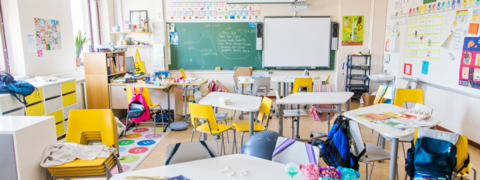Support and Inclusion projects’ joint panel discussion looked to the future
On 5 June 2023 the panel discussion “Towards inclusive early childhood, pre-primary and basic education” was held in Espoo. The aim was to hold the joint panel discussion of the “Right to Learn: Support and Inclusion” projects before they ended. The panel discussion looked to the future and covered the development of matters related to support and inclusion so that children’s and young people’s continuous paths of growth and learning as well as cooperation between different bodies can be ensured.
The event was held on Teams and it was intended for the experts, managers, principals and directors of early childhood education units working in the Growth and Learning Sector. The event was also open to anyone interested in the topic. The event started with the opening statement of Juha Nurmi, Director of Basic Education in Finnish.
The panel discussed topics such as the management of inclusion, the development of staff’s competence and the construction of multidisciplinary cooperation in Espoo.
The panel discussion included the following participants:
- Host: Yagmur Özberkan (journalist, host)
- Sari Ahola (Day Care Manager, the Hösmärin päiväkoti day-care centre)
- Jonna Kari (Head of Psychologist Services, Wellbeing Services County of Western Uusimaa)
- Miia Loisa-Turunen (Head of Student Support Services, Finnish basic education)
- Aaro Partanen (principal in basic education, the Ruusutorpan koulu primary school)
- Outi Saloranta-Eriksson (Superintendent of Curricula, svenska bildningstjänster)
- Anita Vataja (Early Childhood Education Specialist, Support Services, Finnish Early Childhood Education)
Many thanks for your interest, contributions and good questions to all participants!
Background of the Support and Inclusion projects
There have been two “Right to Learn: Support and Inclusion” projects running in Espoo:
- “Developing the support and inclusion of learning in early childhood education and care in Espoo” and
- “Right to Learn: support and inclusion of teaching in pre-primary and basic education”.
The projects have improved the quality and equality of early childhood, pre-primary and basic education. The final report of the Right to Learn development programme lists development proposals that are sorted under twelve different themes related to legislation and other development. The projects are part of the Right to Learn 2020–2022 development programme of the Ministry of Education and Culture.
Uninterrupted and smooth learning paths - it is about truly including everyone
The Growth and Learning Sector wants to ensure that all children and young people have unbroken and smooth learning paths. The sector also strives to continuously develop cooperation between day-care centres, schools and guardians.
The learning paths of children and young people are built on a learner-oriented basis, in cooperation with children, young people, families and our experts, as Harri Rinta-aho, Deputy Mayor for Growth and Learning, has already stated. More information
When the panel were asked about Espoo’s objectives in terms of inclusion, Education Support Manager for Finnish Basic Education Miia Loisa-Turunen highlighted in her answer the local school principle. Following the principle makes it possible for pupils to have social relationships close to the school.
Inclusive practices were also of interest in principals’ seminar
In the spring 2023 principals’ seminar, pedagogic interventions and inclusive practices to support well-being and learning were talked about by PhD and Principal of Kaitaan koulu primary school Ritva Mickelsson along with EdD and Principal of Lintuvaaran koulu primary school Birgit Paju. The example practices covered included sociopedagogic dog-assisted and horse-assisted activities, in which Espoo already has some experience. Read more
”For example, focusing on the experiences is important in organising horse-assisted activities: “Studies have shown that teachers who create and enable inclusive learning environments and adopt unusual communal learning methods enable social relationships between pupils while forming pedagogic relationships with pupils.” (Mickelsson, 2023)
During the principals’ seminar, the principals had the opportunity to visit classes that utilise the inclusion model in Espoo. One of these classes is in the Lintulaakson koulu primary school. The topic was also discussed at SuomiAreena in the summer.
Inclusion also featured in our podcast
You can also listen to a podcast episode detailing the inclusion model of the Lintulaakson koulu primary school (in Finnish). In addition, the first episode of the series focuses on inclusion as well as cooperation between teachers. Last autumn saw the launch of the Tukevaa puhetta podcast that explores ways to support teaching in schools in Espoo. More information
You can listen to all episodes on Spotify or SoundCloud(external link, opens in a new window).
The themes of the podcasts include, for example, how to tackle neuropsychiatric challenges in teaching at school and how to take multilingual students’ learning and language awareness into account. Text alternatives can be found on Espoo’s basic education website under “articles”.
